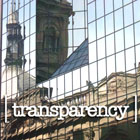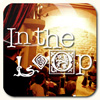
JFK "PROBABLY ASSASSINATED AS A RESULT OF A CONSPIRACY"
A PRISMATIC VIEW OF MEDIA VARIATION IN REPORTING THE KILLING; HOW COMPETING THEORIES KEEP HISTORY FROM GETTING THE STORY STRAIGHT 22 November 2003 Four decades have passed since President John F. Kennedy was assassinated in Dallas, Texas. There is still no definitive story that lets the public in on the truth of the matter. Long discredited by eye-witness testimony and forensic evidence, the Warren Commission Report is now believed to be false by 68% of Americans (ABC News poll). The same number say they believe there was a government-led cover-up of the facts surrounding the assassination, though suspicion about motive varies widely. During the last week, the History Channel ran a series of documentaries which point to the guilt of many individuals. One reporter claims to have identified the shooters as mafia-hitmen, and to have discovered their names, their plot, their accomplices and their whereabouts. Another conducted interviews with lawyers who worked for or around Johnson who claim to know that he ordered the assassination to cover up past crimes. Salon.com indicates that one of these lawyers, who worked for a Texas law firm that represented Johnson, is "none other than White House spokesman Scott McClellan's father, Barr". In one of the segments from "The Men Who Killed Kennedy", photo-analysis of a Polaroid taken within one-sixth of a second of the final shot reveals a shooter in the act of firing, from the grassy knoll. ABC News and Peter Jennings gave a surprising report on the evening of Thursday, the 20th, in which they claimed to prove the irrefutable veracity of the Warren Commission Report. This is surprising because the standing position of the Federal government, as laid out in findings from Congressional hearings, is that the Warren report ignored key facts and endorsed a flawed theory. In 1979, the House Select Committee on Assassinations issued its report, in which it debunked the Warren Report and stated that there were in fact at least 4 shots, at least 2 gunmen, and by definition, a conspiracy. The surprising reversal of official history was based largely on acoustic analysis of a recording of sound transmissions from an active police radio in Dealey Plaza at the moment of the assassination. ABC News in turn said it has debunked the Congressional Report, using a National Academy of Sciences study that claimed to refute acoustic evidence proving the fourth shot. What was disproven by this second study was a specific predictive calculation tied into the acoustic evidence, which predicted that a certain officer would have been at a certain spot at a certain time. The refutation of the evidence never explained the whereabouts of other officers, or why the radio had to be in a specific location exactly, lest all sound from the recording be useless. ABC did not report that, in 2001, another government scientist determined that the NAS study was flawed and published his findings in the British journal, Science and Justice. Robert Blakey, who conducted the House investigations became convinced that there was a conspiracy tied to the mafia, and rooted in New Orleans, which would explain the involvement of Oswald, but which also leads back to many of the various conspiracy theories surrounding the still unsolved mystery. There are various elements of ABC's reporting that are surprisingly inconsistent with their tradition of high journalistic standards. For instance: various assertions were given full credence, even though they were no more than assertions made by individuals. The FBI's statements about its own involvement, its investigatory missteps and various anomalies in the process of examining evidence were taken to be wholly accurate, though nothing beyond the word of those making the statements was offered as proof. Just one day after ABC declared that FBI analysis conclusively closed the case on the JFK assassination, the AP reported that an independent review panel criticized the Bureau for imprecision and flawed analysis of ballistics evidence, a key component of the JFK case. The New York Times also reported, on the day following the ABC special, that the FBI used killers as informants, going so far to protect them as to knowingly allow innocent men to receive death sentences, even excusing murders committed by informants while under federal protection. The issue in these cases isn't that the FBI can't be trusted. The FBI has a stellar record of law enforcement, and the majority of those who work there have sound or even impeccable records. The issue is whether any news source can be trusted that gives unqualified credence to all claims issued by any particular agency. Government agencies are made up of human beings, and human beings make mistakes, have motives, and sometimes keep secrets. The fact that all of these allegations have been made against the FBI in the JFK case should produce at least a hint of skepticism from any leading news outlet. ABC also put forth second- and third-hand sources as definitive proof of their pro-Warren argument. The majority of witnesses who either witnessed the shooting, or who claimed to have knowledge about connections between Oswald and Ruby, or Ruby and the mafia, were discounted in every instance as having ulterior motives, being untrustworthy, or "wanting to be important". In fact, Oswald's own brother, who never claimed to have direct knowledge of an assassination plot, was offered as giving incontrovertible proof of guilt by his assertion that Oswald always wanted to be somebody. Such relatives have been known to be accurate in their intuitions about what their kin are capable of doing, but by its very nature, such testimony is hearsay and does not meet the standard of proof in any American court of law. One might say, though certainly there is no reason for saying so about any particular individual, that anyone who gives an interview to ABC News about the JFK assassination only "wants to be important". What's more, members of the Warren Commission had leaked to the press the alleged testimony of Oswald's brother that he believed Lee Harvey was an agent of the Soviet Union. As noted in Bertrand Russell's 1964 essay on the subject of evidence regarding the assassination, numerous sources cite Robert Oswald as having been outraged by this and vehemently telling the press that he had never said or testified any such thing and that he had never harbored such beliefs. ABC News did not adequately characterize its use of information relating to statements attributed to Robert Oswald, or its relevance to the incident of the Warren Commission leak, apparently a distortion of testimony given under oath. So while ABC sought to use the table-top psychology motif, arguing that the ambition to be recognized by society was sufficient to prove the guilt of the accused, there are other more concrete sources they could have referred to in hashing out this part of the puzzle, especially if hearsay was to be considered demonstrative proof. One might say that testimony by a woman claiming to be Oswald's mistress and the analysis of New Orleans D.A. Jim Garrison (who conducted the only criminal prosecution regarding a conspiracy), which indicates that Oswald hoped to stop the killing, might also fit into the analysis that he wanted to be important. That's not to make any statement about the veracity of such claims, but only to illustrate the hollow nature of the evidence offered by ABC in support of their own claims. But there is another fundamental problem with ABC's reporting on the veracity of the Warren Commission's case against Oswald: as reported in philosopher Betrand Russell's "16 Questions":
It seems unlikely one could arrive at a comprehensive analysis of the veracity of a report which itself never set out to examine alternative explanations to its own conclusion. In normal criminal prosecutions, this behavior would be considered malicious prosecution, and a sign that evidence would be likely to be misrepresented or given distorted weight. ABC would have to examine, as Congressional hearings finding holes in the Commission report have done, what the Commission ignored, in order to give adequate or even minimal gravitas to its claim to find the Commission report unflawed in its evidentiary assertions. Two generations removed from the fateful day, we have a wide variety of interpretations, all widely available, all given weight by a large number of Americans:
It is not clear whether any of these sources know enough to prove guilt beyond a reasonable doubt. It is not clear whether the autopsy and other investigatory tools were tampered with or whether the facts about such incidents will ever be revealed. What is clear is that there is a wide range of speculation from a wide range of sources, and that everyone seems to have an opinion. The question for every reader and viewer is whether opinion should constitute evidence, or more precariously: fact. [s]
UPDATE: A new lawsuit has been brought in federal court to open secret CIA files regarding a career spy who was tied to Lee Harvey Oswald. George Joannides died in 1990, leading litigants to argue that there is no longer any justification for secrecy about his activities. Salon.com reports that:
A memo found at the JFK Library indicates that Joannides supported an anti-Castro group which tracked Oswald and distributed propaganda about his activities. The lawsuit is one of many such suits currently pending which further a debate about what information the government should be allowed to keep from the American people. [For more: Salon] UPDATE: A newly declassified recording indicates that Kennedy was considering peace talks with Cuba. In the wake of the Cuban Missile Crisis, Kennedy aides apparently became convinced that the Castro regime could be turned into an ally, if the relationship yielded mutual strategic benefits. On the tape, recorded only 17 days before he was assassinated, the president reportedly consents "in principle" (SMH) that Bill Attwood, a diplomat, would travel to Cuba to conduct negotiations, but worried about the plan becoming public. Communications went through back channels, and Castro is said to have expressed interest in the talks. The Johnson administration did not continue with the peace mission, possibly because Johnson did not have the political capital Kennedy gained by overcoming the Cuban Missile Crisis. The embargo against Cuba continues to this day. [For more: Sydney Morning Herald] |
||||||||
|
||||||||







